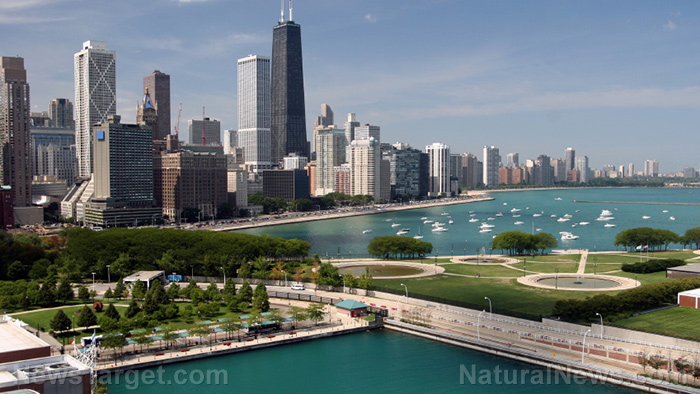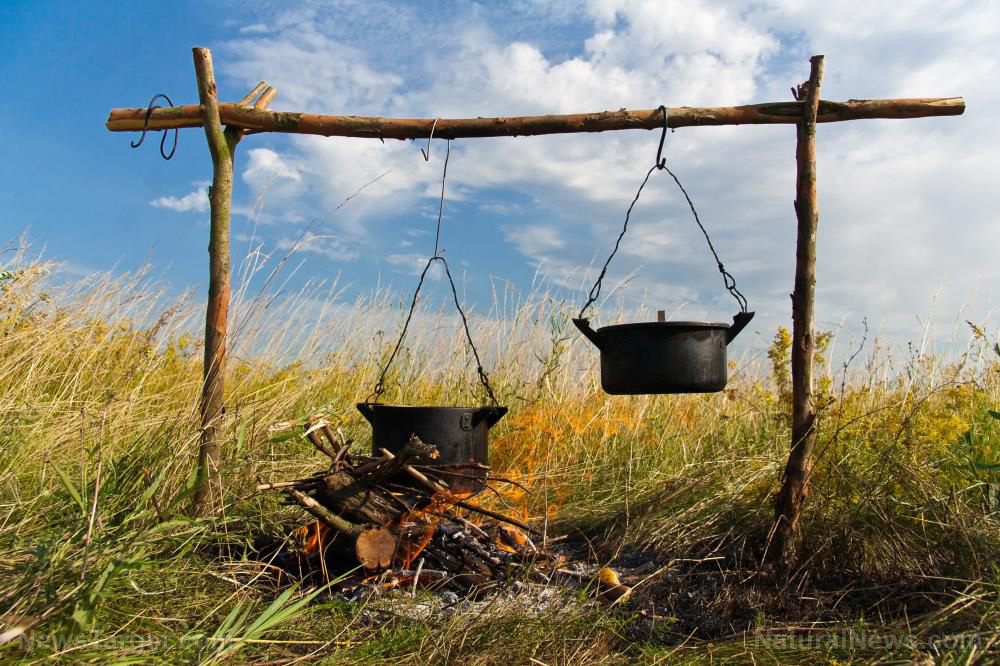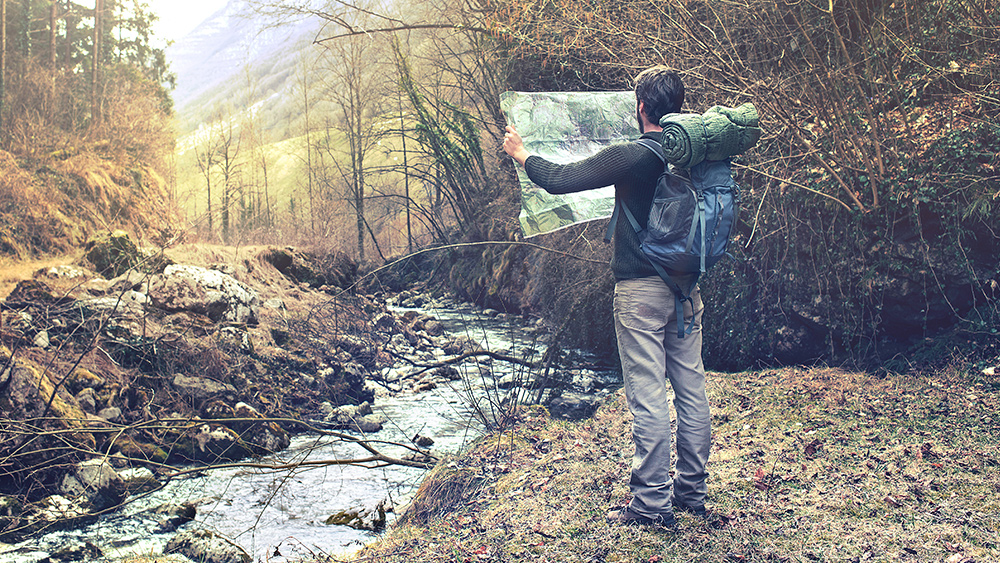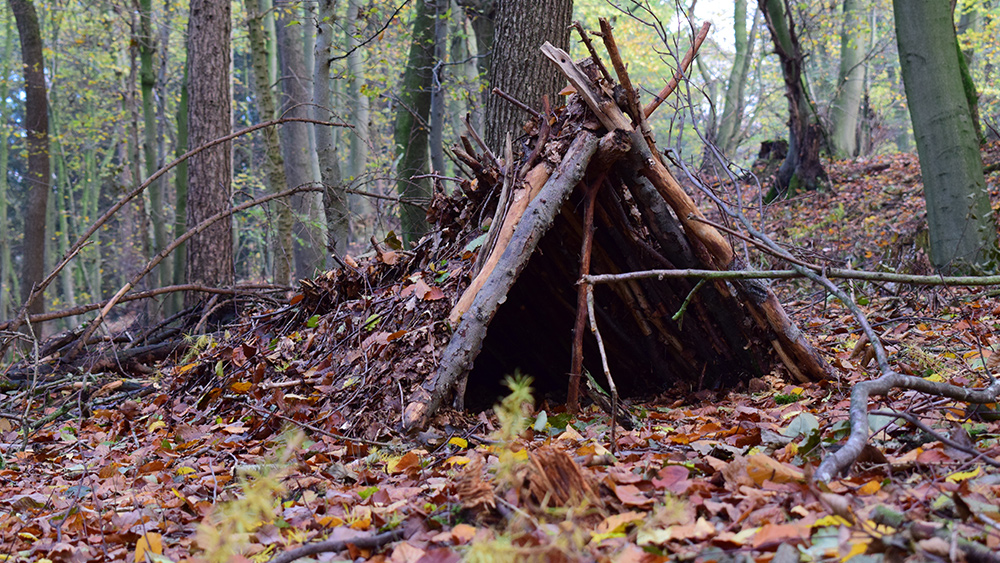
When SHTF, everyone needs access to three things: Shelter, fire, and water. Ideally, you should have your gear with you so you won't have too much trouble with these three things.
Once you're sure the coast is clear and everyone your group is safe, you can start figuring out how to set up these three needs. (h/t to AmericanPreppersNetwork.com.)
How shelter, fire, and water can help you survive in the woods
Unlike popular belief, hypothermia claims more lives out in the woods than both bears and wolves combined. A shelter can keep you warm, and it will give you a place to sleep and rest so you can get your strength back.
Your gear should always include materials for building a shelter, but you should also know how to build a makeshift shelter using natural materials, just in case. Practice your knot tying so your shelter is secure from the elements.
When packing your gear, include cordage, a lightweight sleeping bag, and some stakes to you can set up your own shelter. You can also consider using the following as emergency shelter:
- Cardboard (if abundant)
- Caves
- Lean-to shelter
- Poncho
- Sturdy rock formations
- Tarps
- Tents
Fire is another thing that's crucial to your survival. When SHTF, fire can cook your food, keep you warm, and protect you from wild animals. You can even use it to signal for help and make water safe to drink.
A lighter is the quickest way to start a fire, but knowing how to start one using other ways can improve your chances of survival. Here are other methods to start a fire that you can start practicing:
- Ferro rod
- Flint and steel
- Magnifying glass
- Nine-volt battery and steel wool
Take note that these four methods will only create a spark and an ember and that you need to know how to start a fire using wood and kindling.
To build a steady burning fire, getting the right kind of kindling and firewood is crucial. When you're gathering wood, remember that hardwood, such as oak, burns slow and steady. Meanwhile, high resin wood, such as pine, burns hot and fast. Try to start a fire with pine, then sustain it with oak or other hardwood. (Related: Tips for the beginning prepper.)
When SHTF, you also need to remember that you can't go longer than three days without drinking water. Even if you find a water source, it must be filtered and purified before you can drink it.
Thankfully, science and technology have advanced enough to give us access to portable water filters. Make sure you always have a water filter in your gear so you can stay hydrated out in the woods.
You can also read up on manual ways to filter water like through a biofilter and some purifying tablets. Knowing an alternate way of filtering water is beneficial, especially if you don't have a water filter with you or if you lose access to your gear.
Prepare your gear so you won't have to worry about shelter, fire, and water when SHTF. Once these three things are settled, you can look for food and signal for help. When it comes to food, learning how to forage can be a big help. If push comes to shove, you can survive at least a week without food.
By preparing your gear and brushing up on your bushcraft skills, you can significantly improve your chances of survival when SHTF.
You can read more articles about the kind of survival gear that you will need to procure shelter, fire, and water when SHTF at Gear.news.
Sources include:
Please contact us for more information.





















